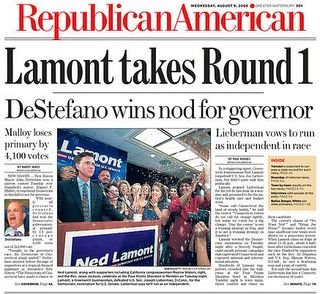look in the mirror much?
Preznit's Statement on Kleptocracy
For too long, the culture of corruption has undercut development and good governance and bred criminality and mistrust around the world. High-level corruption by senior government officials, or kleptocracy, is a grave and corrosive abuse of power and represents the most invidious type of public corruption. It threatens our national interest and violates our values. It impedes our efforts to promote freedom and democracy, end poverty, and combat international crime and terrorism. Kleptocracy is an obstacle to democratic progress, undermines faith in government institutions, and steals prosperity from the people. Promoting transparent, accountable governance is a critical component of our freedom agenda.
[snip]
Our objective is to defeat high-level public corruption in all its forms and to deny corrupt officials access to the international financial system as a means of defrauding their people and hiding their ill-gotten gains. Given the nature of our open, accessible international financial system, our success in fighting kleptocracy will depend upon the participation and accountability of our partner nations, the international financial community, and regional and multilateral development institutions. Together, we can confront kleptocracy and help create the conditions necessary for people everywhere to enjoy the full benefits of honest, just, and accountable governance.
Read Rep. Louise Slaughter's take on this statement.











